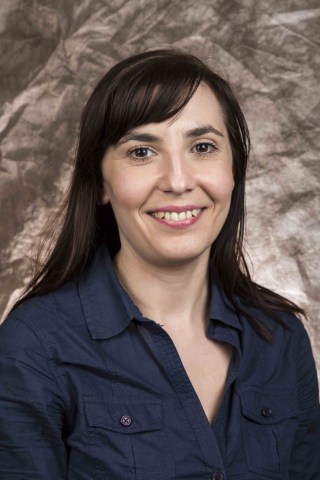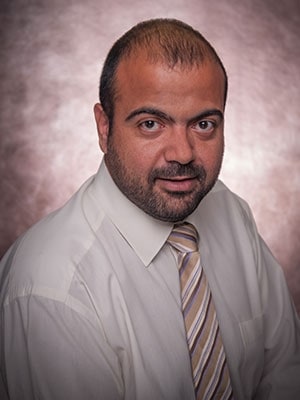Human Biology
(BSc, 4 years)
Duration
4 years
Qualification Awarded
Bachelor of Science in Human Biology
Level of Qualification
Bachelor Degree (1st Cycle)
Language of Instruction
English and Greek
Mode of Study
Full-time or Part-time
Minimum ECTs Credits
240
Request Information
Human Biology (BSc, 4 years)
| Duration | 4 years |
| Qualification Awarded | Bachelor of Science in Human Biology |
| Level of Qualification | Bachelor Degree (1st Cycle) |
| Language of Instruction | English or Greek |
| Mode of Study | Full-time and Part-time |
| Minimum ECTS Credits | 240 |
Request Information
Profile of the Programme
The Bachelor of Science (B.Sc.) Degree Programme in Human Biology is an accredited interschool/interdepartmental, undergraduate Programme. It aims to provide students with the opportunity to receive an interdisciplinary perspective on the relationship between the biological, health and sociocultural aspects of humanity’s origin, development, function and prospects.
Aims
To provide interdisciplinary education in the molecular, cellular and whole body biological processes and mechanisms for the understanding of issues and concepts related to human life and to health and disease.
Objectives
- Introduce students to biological sciences and teach them how these are interrelated in understanding the human biological functions.
- Teach students how these functions are related to human evolution, behavior and culture.
- Help students analyze, discuss critically and relate biological issues to human health and diseases.
- Prepare students towards advanced academic studies and research in the biosciences, the biomedical fields and in medicine.
- Prepare students towards a career in the pharmaceutical, medical and biotechnology industries and in the education sector.
- Help students develop ethos and skills and attitudes required for lifelong learning.
Career Prospects
On successful completion of the program, graduates will be able to find employment at various sectors. Potential employment opportunities include: the Education sector (primary and secondary education); the Biomedical sector of public or private Clinical Diagnostic and/or Research Laboratories/Centers; the Pharmaceutical Industry and the Government and/or public/private Organizations/Institutions concerned with Public Health issues.
Access to Further Studies
Upon graduation, students may proceed directly to further postgraduate (MSc, MA, MRes, MPhil) studies for specialization in the various fields of the Biosciences/Biomedical Life and Health Sciences.
The University of Nicosia also offers an MSc in Biomedical Sciences which may be followed to further your studies.
Academic Admission
The minimum admission requirement to an undergraduate programme of study is a recognized High School Leaving Certificate (HSLC) or equivalent internationally recognized qualification(s). Students with a lower HSLC grade than 7.5/10 or 15/20 or equivalent depending on the grading system of the country issuing the HSLC are provided with extra academic guidance and monitoring during the first year of their studies.
In addition to the above, applicants must also satisfy the following requirements:
- Your registration to the science courses Chemistry, Biology and Mathematics will be considered on an individual basis. Students with “(I)GCSE” Chemistry, Biology, and a passing grade of ≥17 out of 20 will be allowed to take these courses. If you do not meet these criteria you will be required to take first the Foundation Courses and achieve a minimum GPA grade of ≥ 2.5 out of 4 before you are allowed to register for any the relevant courses of the Programme. Your registration to the Mathematics courses of the Programme will depend on your performance in the Mathematics Placement Test which you have to take upon admission to the University. You may be required to take lower level Mathematics courses if your performance is low.
- Course Credits earned at other accredited Colleges/Universities will be considered for transfer upon petition with an attached syllabus and provided the passing course grade is ≥C (75%) and the courses are of the same quality and equivalency as courses offered by the Programme. Transfer of credits will have to be approved. You must provide to the Registrar all the documents required for the completion of the Official Credit Transfer Evaluation Report for approval. Transfer credits do not count towards a student’s Credit Point Average (CPA).
- Regarding GCE “A” level, you are allowed a total of up to 30 ECTS unit credits for advanced standing in Chemistry, Biology and Physics provided you have obtained a grade of ≥75%.
- Regardless of the number of credits transferred from accredited Higher Education Institutions, graduates of 2-year accredited programmes and transfer students from 4-year accredited programmes in the same discipline from another Higher Education Institution in Cyprus or abroad, are required to gain a minimum of 120 ECTS from courses of the Human Biology Programme for the award of their Degree. Students who transfer from 3 year UK programmes in the same discipline, will require to gain a minimum of 90 ECTS from courses of the Human Biology Programme for the award of their Degree.
English Language Proficiency
The list below provides the minimum English Language Requirements (ELR) for enrollment to the programme of study. Students who do not possess any of the qualifications or stipulated grades listed below and hold IELTS with 4.5 and above, are required to take UNIC’s NEPTON English Placement Test (with no charge) and will receive English Language support classes.
- TOEFL – 525 and above
- Computer-based TOEFL – 193 and above
- Internet-based TOEFL – 80 and above
- IELTS – 6 and above
- Cambridge Exams [First Certificate] – B and above
- Cambridge Exams [Proficiency Certificate – C and above
- GCSE English Language “O” Level – C and above
- Michigan Examination of Proficiency in English (CaMLA) – Pass
- Pearson PTE General – Level 3 and above
- KPG (The Greek Foreign Language Examinations for the State Certificate of Language Proficiency) – Level B2 and above
- Anglia – Level B2 and above
- IEB Advances Programme English – Pass
- Examination for the Certificate of Proficiency in English (ECPE) Michigan Language Assessment by: Cambridge Assessment English & University of Michigan – 650 average score for ALL skills and above
Course assessment usually comprises of a comprehensive final exam and continuous assessment. Continuous assessment can include amongst others, mid-terms, projects, and class participation. Letter grades are calculated based on the weight of the final exam and the continuous assessment and the actual numerical marks obtained in these two assessment components. Based on the course grades the student’s semester grade point average (GPA) and cumulative point average (CPA) are calculated.
The student must complete 240 ECTS and all programme requirements. A minimum cumulative grade point average (CPA) of 2.0 is required. Thus, although a ‘D-‘ is a PASS grade, in order to achieve a CPA of 2.0 an average grade of ‘C’ is required.
By the end of the programme the graduates will be able to:
- Name, identify, describe, relate and explain the role and importance of the biological components, processes and mechanisms that define biological form and function at the molecular, cellular and whole body levels.
- Relate biological functions to health and disease and discuss these in relation to human development, genes, behavior and culture.
- Follow instructions, apply techniques and use modern technologies to collect, analyze, evaluate and critically appraise experimental data.
- Describe and discuss the theoretical and experimental basis and technologies used in scientific research.
- Design and execute a research project and organize, interpret, discuss and critically evaluate related scientific literature and research outcomes.
- Apply critical, analytical, reflective and independent thinking (cognitive skills) in problem solving in the life and health sciences fields.
- Apply life-long learning skills (computer skills, numeracy, communication and reporting), and demonstrate a professional and ethical approach to working individually or as a member of a team.
| Course Code | Course Title | ECTS Credits |
|---|---|---|
| BIOL-101 | General Biology I | 6 |
| BIOL-102 | General Biology II | 6 |
| BIOL-201 | Cell Biology | 6 |
| BIOL-205 | Human Anatomy and Physiology I | 6 |
| BIOL-206 | Human Anatomy and Physiology II | 6 |
| BIOL-207 | Human Evolution | 6 |
| BIOL-221 | Human Nutrition | 6 |
| BIOL-231 | Biostatistics | 6 |
| BIOL-232 | Human Molecular Genetics | 6 |
| BIOL-241 | Immunology | 6 |
| BIOL-251 | Introduction to Microbiology and Virology | 6 |
| BIOL-301 | Developmental Biology and Human Embryology | 8 |
| BIOL-303 | Human Biological Variation | 6 |
| BIOL-311 | Molecular Biology | 8 |
| BIOL-312 | Bioanalytical Techniques and Instrumentation | 8 |
| BIOL-321 | Biochemistry I | 8 |
| BIOL-322 | Biochemistry II | 8 |
| BIOL-323 | Molecular Basis to Health and Disease | 8 |
| BIOL-371 | Drug Action and Toxicology | 8 |
| BIOL-491 | Research Project I | 6 |
| BIOL-492 | Research Project II | 10 |
| BIOL-492A | Research Project II (Field Work) | 10 |
| CHEM-105 | General Chemistry | 6 |
| CHEM-135 | Physical Chemistry | 6 |
| CHEM-245 | Organic Chemistry | 6 |
| MATH-192 | Calculus for the Life Sciences I | 6 |
| MATH-193 | Calculus for the Life Sciences II | 6 |
| PHYS-110 | Elements of Physics | 6 |
| PSY-110 | General Psychology I | 6 |
| Course Code | Course Title | ECTS Credits |
|---|---|---|
| BIOL-402 | Human Biology and Culture | 6 |
| BIOL-403 | Ecology | 6 |
| BIOL-412 | Modern Genomics and Bioinformatics | 6 |
| BIOL-413 | Perspectives of Biotechnology | 6 |
| BIOL-414 | Cell Growth and Cancer | 6 |
| BIOL-421 | Enzymology | 6 |
| BIOL-422 | Basic Concepts of Applied Biochemistry | 6 |
| BIOL-423 | Cell Signalling | 6 |
| BIOL-431 | Bioethics | 6 |
| BIOL-441 | Communicable Diseases | 6 |
| BIOL-442 | Health Care Systems | 6 |
| BIOL-443 | Epidemiology | 6 |
| BIOL-444 | Public Health Nutrition | 6 |
| BIOL-451 | Environmental Health | 6 |
| BIOL-461 | Cellular Neuroscience | 6 |
| BIOL-472 | Drug Discovery Research | 6 |
| BIOL-473 | Clinical Research | 6 |
| BIOL-481 | Viruses and Human Diseases | 6 |
| Course Code | Course Title | ECTS Credits |
|---|---|---|
| ANTH-105 | Cultural Anthropology | 6 |
| ART-110 | Introduction to Visual Arts | 6 |
| ART-111 | Greek Art | 6 |
| BADM-231 | Business Communications | 6 |
| BADM-332 | Technical Writing and Research | 6 |
| COMM-200 | Business and Professional Communication | 6 |
| COMP-150 | Microcomputer Applications | 6 |
| COMP-151 | Computer Fundamentals | 6 |
| EDUS-411 | Science Teaching Methods | 6 |
| ENGL-100 | Basic Writing | 6 |
| ENGL-101 | English Composition | 6 |
| ENGL-102 | Western World Literature and Composition | 6 |
| ESCI-200 | Society and Environment | 6 |
| HIST-201 | World History to 1500 | 6 |
| HIST-265 | The US and World History Since 1945 | 6 |
| MATH-180 | Algebra and Trigonometry | 6 |
| MULT-160 | Introduction to Multimedia | 6 |
| MULT-161 | Interactive Multimedia Development | 6 |
| MUS-110 | Introduction to Music | 6 |
| PHIL-120 | Ethics | 6 |
| PSY-111 | General Psychology II | 6 |
| PSY-210 | Social Psychology | 6 |
| PSY-240 | Abnormal Psychology | 6 |
| PSY-330 | Psychology of Gender | 6 |
| REL-250A | Ancient and Medieval Christian Thought | 6 |
| SOC-101 | Principles of Sociology | 6 |
| UNIC-100 | University Experience | 6 |
Semester 1
| Course ID | Course Title | ECTS Credits |
|---|---|---|
| BIOL-101 | General Biology I | 6 |
| CHEM-105 | General Chemistry | 6 |
| MATH-192 | Calculus for the Life Sciences I | 6 |
| PHYS-110 | Elements of Physics | 6 |
| PSY-110 | General Psychology I | 6 |
Semester 2
| Course ID | Course Title | ECTS Credits |
|---|---|---|
| BIOL-102 | General Biology II | 6 |
| BIOL-221 | Human Nutrition | 6 |
| CHEM-135 | Physical Chemistry | 6 |
| ENGL-101 | English Composition | 6 |
| MATH-193 | Calculus for the Life Sciences II | 6 |
Semester 3
| Course ID | Course Title | ECTS Credits |
|---|---|---|
| BIOL-201 | Cell Biology | 6 |
| BIOL-205 | Human Anatomy and Physiology I | 6 |
| BIOL-207 | Human Evolution | 6 |
| BIOL-231 | Biostatistics | 6 |
| BIOL-232 | Human Molecular Genetics | 6 |
Semester 4
| Course ID | Course Title | ECTS Credits |
|---|---|---|
| CHEM-245 | Organic Chemistry | 6 |
| BIOL-206 | Human Anatomy and Physiology II | 6 |
| BIOL-241 | Immunology | 6 |
| BIOL-251 | Introduction to Microbiology and Virology | 6 |
| PSY-111 | General Psychology II | 6 |
| EDUS-411 | Science Teaching Methods | 6 |
Semester 5
| Course ID | Course Title | ECTS Credits |
|---|---|---|
| BIOL-301 | Developmental Biology and Human Embryology | 8 |
| BIOL-311 | Molecular Biology | 8 |
| BIOL-321 | Biochemistry I | 8 |
| HIST-201 | World History to 1500 | 6 |
Semester 6
| Course ID | Course Title | ECTS Credits |
|---|---|---|
| BIOL-303 | Human Biological Variation | 6 |
| BIOL-322 | Biochemistry II | 8 |
| BIOL-371 | Drug Action and Toxicology | 8 |
| BIOL-323 | Molecular Basis to Health and Disease | 8 |
Semester 7
| Course ID | Course Title | ECTS Credits |
|---|---|---|
| BIOL-491 | Research Project I | 6 |
| BIOL-431 | Bioethics | 6 |
| BIOL-414 | Cell Growth and Cancer | 6 |
| BIOL-423 | Cell Signalling | 6 |
| BIOL-442 | Health Care Systems | 6 |
Semester 8
| Course ID | Course Title | ECTS Credits |
|---|---|---|
| BIOL-492 | Research Project II | 10 |
| BIOL-312 | Bioanalytical Techniques and Instrumentation | 8 |
| BIOL-461 | Cellular Neuroscience | 6 |
| BIOL-451 | Environmental Health | 6 |













